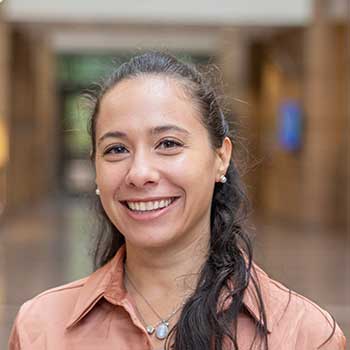Control Seminar
Frontiers of Autonomous Space Systems: Navigating the Future of Exploration and Technology
This event is free and open to the publicAdd to Google Calendar

Abstract:
In the contemporary era, the zeal for space exploration demands sophisticated autonomous systems for navigating unforeseen challenges. This seminar explores the evolving field of space technology, focusing on drag modulation, autonomous decision-making, and sustainability in shaping future missions. It posits that mission progression relies on a synergistic, multifaceted approach, blending technical advancements in spacecraft control and autonomy with a commitment to sustainability.
The discussion will highlight how autonomy, machine learning, control theory, and strategic decision-making drive the development of systems capable of making informed, safety-conscious decisions that enhance mission efficacy. Additionally, the seminar will address how these innovations tackle environmental challenges on Earth, including space debris management, climate change, and Earth hazards monitoring.
The presentation aims to shed light on technical breakthroughs propelling space missions forward while emphasizing the critical link between space exploration and planetary stewardship. It seeks to demonstrate how space technology advances contribute to sustainability, underlining the essential unity of space exploration and Earth’s environmental well-being.
Bio:
Dr. Giusy Falcone is an Assistant Professor of Aerospace Engineering at the University of Michigan, where she leads the Space-Flight Autonomous Leading Concepts (Space-FALCON) Lab. With degrees in Aerospace Engineering from the University of Pisa (B.S., 2014; M.S., 2017) and a Ph.D. from the University of Illinois at Urbana-Champaign (2021), her work bridges advanced autonomy with space exploration challenges. At Carnegie Mellon University’s Robotics Institute, she further honed her expertise in trajectory optimization for space applications as Postdoctoral Fellow.
Her research is at the forefront of integrating autonomous systems, hypersonic and space systems, guidance, navigation and control, flight mechanics, and artificial intelligence for the advancement of space missions. At the Space-FALCON Lab, Dr. Falcone and her team are pioneering dynamic autonomous robotics solutions, targeting human-level environment-aware decision-making systems, advanced atmospheric-controlled robotic systems, and innovative uses of AI and trajectory optimization for space exploration. Her research, recognized by the 2022 AIAA Intelligent Systems Best Paper Award, targets low-cost, autonomous solutions for dynamic space missions, emphasizing adaptability and safety.
***Event will take place in hybrid format. The location for in-person attendance will be room 1500 EECS. Attendance will also be possible via Zoom. The Zoom link and password will be distributed to the Controls Group e-mail list-serv.
To join this list-serv, please send an (empty) email message to [email protected] with the word “subscribe” in the subject line. To cancel your subscription, send an (empty) email to [email protected] with the word “unsubscribe” in the subject line. Zoom information is also available upon request to Shelly Feldkamp at [email protected].
 MENU
MENU 
